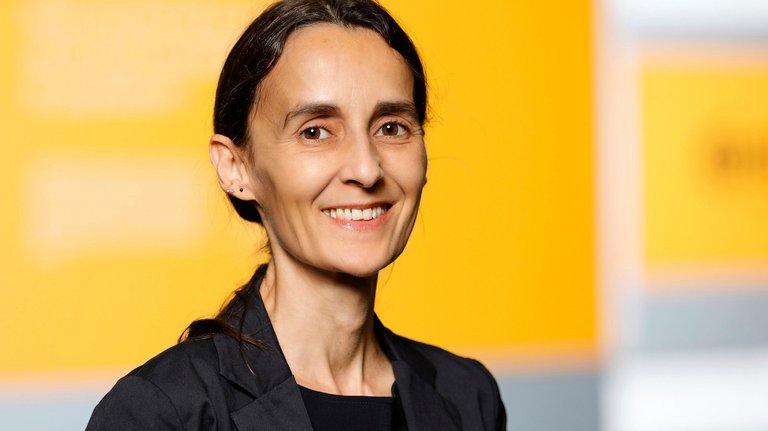11th Continental Student Survey
It Has to Be Fun – Flexibility at Work as a Basis for a Good Work-Life Balance
- A job shouldn't just bring in the money – it should be challenging and a source of happiness
- Friendships with colleagues are all very well, but "private life is private!"
- Young professionals are very self-assured: around 80% are (very) confident about their career prospects – among students, 70% have this outlook
- Half of those asked want to work in the region where they live
Hanover, November 26, 2014. It has to be fun and challenging. It should lead to new friendships and be flexible enough to leave time for family life. The more international and diverse the sector, the better – but it's best of all if it's just around the corner. These key ideas describe the ideal workplace that young Germans are looking for. Students and recent graduates largely agree. However, as professional experience increases, there is a change in perceptions and attitudes: for example, young professionals are far more mobile internationally after the first few years in work than students – although still to a limited degree.
These are just a couple of the key results from the 11th "Continental Student Survey," which for the first time also quizzed a representative sample of recent graduates as well as students about their expectations for work, their work-life balance, and career wishes. "Our new survey shows the extent to which the views of young people change after their initial professional experience. There has never before been such an in-depth analysis," says Continental Chief Human Resources Officer Dr. Ariane Reinhart when presenting the survey's results as part of the "Continental Student Day" on Wednesday in Hanover. "This study has given us valuable insights. It will help us continue to ensure we are a highly attractive employer. We will leverage the results to further develop our company culture and to establish an appreciative working environment."
For the 11th "Continental Student Survey" the polling institute infas was commissioned by the international automotive supplier, tire manufacturer, and industry partner Continental to question 1000 students and young professionals. On average the students were 25 years old. The young professionals asked to take part were employees at Continental who have worked at the company for no more than 5 years and are 32 years or younger. On average they were 28 years old.
Everyone needs to feel valued
The work-life balance is important for both young professionals and students, but this doesn't mean they want a job that's meaningless to them. Work has to be challenging and fun. Young professionals rate the "work-life balance" as the most important factor (59%), closely followed by their desire for "a job that's fun" (58%), and has "challenging content" (43%). However for students, fun comes top. Their primary goal is to have "a job that's fun" (60%). Then comes their desire for a "work-life balance" (56%), and some way behind, a "good salary" (34%).
Regardless of whether they are in their first job or still completing their studies, junior staff want to be valued and adequately recognized. "They want to contribute to the success of their organization as independent, intelligent people, and not just as functionaries," says Reinhart. She adds: "Feeling valued is key to leading a fulfilled work life, which is important for a happy (private) life. Our four corporate values 'Trust,' 'Passion To Win,' 'Freedom To Act,' and 'For One Another' provide an excellent foundation for this. Our values are part of our lives, because they create value and are more than just words on a piece of paper. They are actually a fundamental part of our company strategy, which makes us fit for the future."
Work-life balance
Generation Y, all connected young people, are faced with crucial questions: How much does work impact private life, and how much does private life impact work? There's no easy answer. Respondents are looking for friendships with colleagues (students 73%, young professionals 75%), but at the same time they also want clear boundaries between work and their private life (students 61%, young professionals 63%). More than half of students (55%) and almost two-thirds of young professionals (61%) stated that they would be willing to put their professional goals on the back burner for their families.
"For me, the desire of young people to have distinct boundaries between work and their private life is a clear request for more flexibility. As the first generation of 'digital natives,' generation Y is used to thinking in networks and being mobile in their head. With our internal business network ConNext, we are consistently pursuing a networking strategy. For years now, we have given our employees the opportunity to quickly make contact with each other worldwide with this social Web platform, without considering the restrictions of hierarchy. This allows them to network and share their knowledge," says Reinhart. "Networking and mobile availability are two big advantages in a company that works on individual mobility for the future. They enable flexibility and therefore a better work-life balance. They give employees more freedom and independence, however they also require an increase in personal responsibility and a modern management style. Not only do we have to allow employees to 'switch off,' but we must also recognize that this really adds value in the true meaning of the phrase."
Internationality
The response of half of the students (49%) and young professionals (51%) to the question "where would you look for a job?" was "In the region where I live now." However, the initial experiences of young professionals in international teams and an internationally active company appear to encourage more openness to an international position. Here there is a significant difference between the attitude of young professionals and students. Barely one in five students would keep an eye out for a job in selected regions around the world – however among young professionals the number is higher, at one third (31%).
For 74% of young professionals and 62% of students, "family and relationships" are the main obstacle to working abroad. Young people also have clear conditions when it comes to a job abroad. For students, it is an "above-average salary" (54%), a "particularly interesting field of work" (45%), and "similar quality of life" (35%). For young professionals, however, a "particularly interesting field of work" (men 60%, women 61%) is the most important thing. More specifically, the men among them want "above-average salary" (58%) and equally a "time limit of two years," and for the placement to be part of a "career plan" (49%). For women, the most important issues are an "interesting field of work," a "time limit of two years," and for the placement to be part of a "career plan" (47%).
"The more our young employees work together with colleagues from around the world, the less they fear the idea of moving abroad. This is because they know that by being posted abroad they can meet people who also belong to the international Continental team," explains Reinhart. "From my own experience, I advise young people to have the courage to go abroad for work. This experience is equally as important for professional and for personal development. Our economy is global, and our export ratio is high. To be able to continue to meet the expectations of customers, markets, and target groups it is a good idea to fundamentally get to know other cultures."
(Career) Prospects
The strong economy here in Germany can also be another reason for young people's reticence toward jobs abroad: 94% of young professionals and 83% of students place a (very) high value on the competitiveness of German companies compared internationally. Young professionals are particularly confident when it comes to thinking about the future. 82% of them are (very) confident when it comes to assessing their future career prospects. None of them are "not at all confident" when it comes to the next career step. But students are also extremely self-confident about the future. 71% see their career prospects in a (very) positive light.
"As an internationally active company, Continental searches out the best talent around the world, people who can develop with us and themselves, and want to support and promote the company. The economic driver in Germany is above all knowledge and know-how. We have to build on this and place our trust in each new generation anew. So it's particularly valuable to see the strong self-confidence the coming generation has when viewing the future," underlines Reinhart. "Despite this, I do have to put a bit of a damper on this confidence. We can see that there are highly talented people worldwide. So the young generation in Germany should not remain satisfied with the knowledge they have acquired; they must be prepared to keep learning throughout their career. I want to clearly encourage them to gain experience – diverse experiences, worldwide, in different roles and professions!"
Click here for the presentation of the 11th Continental Student Survey. - pdf (1.00MB)

